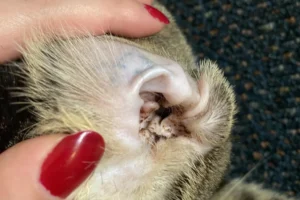Have you ever wondered why some cats outlive dogs? It’s a common observation among pet owners, but the reasons behind this phenomenon might not be so straightforward. Let’s explore the factors that contribute to cats’ longer lifespans in comparison to dogs.
Genetics and Breed Differences
Our furry friends’ lifespans are influenced by a combination of genetics and breed differences. Genetics play a significant role in determining how long our beloved pets live. Just like in humans, certain genetic factors can predispose cats and dogs to various health conditions that may impact their longevity.
Specific breed differences can also affect how long our pets live. Some cat breeds, such as the Siamese or Russian Blue, are known to have longer lifespans compared to others. Similarly, certain dog breeds, like the Chihuahua or Dachshund, tend to live longer lives than larger breeds like Great Danes or Saint Bernards.
One interesting fact is that mixed-breed cats and dogs often have longer lifespans compared to purebred counterparts. The genetic diversity in mixed breeds can sometimes result in better overall health and longevity.
Lifestyle and Environment
When it comes to the lifespan of our furry companions, lifestyle and environment play a crucial role. Providing a balanced diet tailored to your pet’s specific needs can significantly impact their longevity. Regular exercise is also crucial for maintaining their physical health and overall well-being.
Creating a safe and stimulating living environment for your pets can contribute to their longevity. Ensuring they have access to fresh water, a comfortable sleeping area, and plenty of opportunities for mental and physical stimulation can help them lead longer and healthier lives.
Additionally, regular veterinary check-ups are essential to catch any potential health issues early on and provide necessary care. By staying proactive in caring for your pet’s health and well-being, you can help them live a longer and happier life.
Extra tip: Consider implementing preventive measures such as regular dental care and parasite prevention to further promote your pet’s longevity.
For more information on how lifestyle and environment can impact the lifespan of cats and dogs, check out this resource from the American Veterinary Medical Association: AVMA Pet Care Resources.
Medical Care and Veterinary Attention
Regular medical care and veterinary attention play a crucial role in ensuring the health and longevity of our beloved pets. Just like humans, preventive care can help catch potential health issues early on, leading to more effective treatment and better outcomes. Annual check-ups can detect any underlying problems and allow for prompt intervention. Vaccinations are also essential in preventing diseases that can significantly impact your pet’s quality of life. By staying on top of your pet’s medical needs, you are proactively working towards extending their lifespan and ensuring they live a long and healthy life.
Behavioral Differences
Cats and dogs have distinct behavioral differences that may contribute to why some cats tend to outlive dogs. Cats are typically more independent animals, requiring less attention and care on a daily basis compared to dogs. This lower level of stress associated with caring for a cat may lead to reduced health risks and potentially longer lifespans. Additionally, cats are known for their graceful agility and natural instincts, allowing them to avoid dangerous situations more effectively than some dogs. Their cleaning habits also contribute to better health maintenance. By understanding and appreciating these behavioral differences, we can better care for and nurture our pets to help them thrive throughout their lives.
- Cats tend to be more prone to self-grooming, which helps keep their fur clean and free from parasites.
- Cats are often more discerning eaters, making them less prone to obesity and related health issues.
- Dogs may be more prone to accidents due to their playful nature and need for physical activity. Regular exercise and training can help mitigate these risks.
- Cats are more likely to show signs of illness early on due to their independent nature, allowing for early intervention and treatment.
Remember, every pet is unique, so it’s essential to cater to their individual needs when it comes to promoting a long and healthy life.
Aging Process in Cats versus Dogs
While both cats and dogs can make wonderful companions, they age differently due to various physiological factors. Cats generally age more gracefully than dogs, experiencing slower aging processes and exhibiting fewer age-related health issues. One reason for this difference is that cats have a lower metabolic rate compared to dogs, which may contribute to less wear and tear on their bodies over time. Additionally, cats are known for their independent and adaptable nature, enabling them to cope better with stress and changes, which can impact longevity. On the other hand, dogs tend to be more social creatures, which can sometimes lead to stress and anxiety-related health problems as they age. Understanding these nuances can help explain why some cats tend to outlive dogs.
Interesting Facts about Feline Longevity When it comes to lifespan, cats generally have the edge over dogs. On average, indoor cats can live anywhere from 12 to 20 years, with some even reaching their late teens or early twenties. This is quite impressive when compared to the average lifespan of dogs, which typically ranges from 10 to 13 years. One reason for feline longevity is their unique ability to self-regulate their energy levels and conserve energy when needed. Additionally, cats are skilled hunters, which can keep them physically active and mentally sharp well into their senior years. These factors, combined with proper nutrition and veterinary care, contribute to the longevity of our beloved feline friends.
Here’s a unique insight: Genetics also play a significant role in the longevity of cats versus dogs. Certain cat breeds, such as Siamese and Russian Blue, are known to have longer lifespans compared to some dog breeds. This genetic predisposition can have a significant impact on the overall age and health of your furry companion. If you’re considering a new pet and longevity is a crucial factor for you, researching different breeds and their average lifespans can help you make an informed decision.
Tips for Extending Your Pet’s Lifespan
When it comes to helping your furry friend live a long and healthy life, preventive care is key. Regular vet check-ups, vaccinations, and parasite control are essential for both cats and dogs. Remember, an ounce of prevention is worth a pound of cure!
Ensure your pet maintains a healthy diet and receives regular exercise. A well-balanced diet tailored to your pet’s specific needs can help prevent obesity and related health issues. Regular exercise not only keeps your pet physically fit but also promotes mental stimulation and overall well-being.
Maintaining good dental hygiene is crucial for your pet’s longevity. Brushing their teeth regularly and providing dental treats or toys can prevent dental diseases that may affect their overall health.
Create a safe environment for your pet by pet-proofing your home. Remove toxic substances, secure potentially dangerous areas, and provide ample opportunities for mental stimulation to prevent behavioral issues.
Try to minimize stress in your pet’s life by providing a stable routine, plenty of affection, and a safe space where they can retreat when feeling overwhelmed.
Lastly, always keep an eye out for any changes in your pet’s behavior or health and address them promptly. Early detection of health issues can make a significant difference in your pet’s lifespan.
Remember, your pet relies on you for their well-being, so make sure to provide them with the care and attention they need to live a long and happy life.
Extra Tip: Regular grooming sessions can help you detect any abnormalities or lumps on your pet’s skin early on, potentially catching any issues before they become serious.
Maintain a healthy lifestyle for your pet, prioritize preventive care, and stay proactive in monitoring your furry friend’s health to give them the best chance at a long and fulfilling life.
Alex, a passionate animal lover, has experience in training and understanding animal behavior. As a proud pet parent to two dogs and three cats, he founded AnimalReport.net to share insights from animal experts and expand his knowledge of the animal kingdom.




